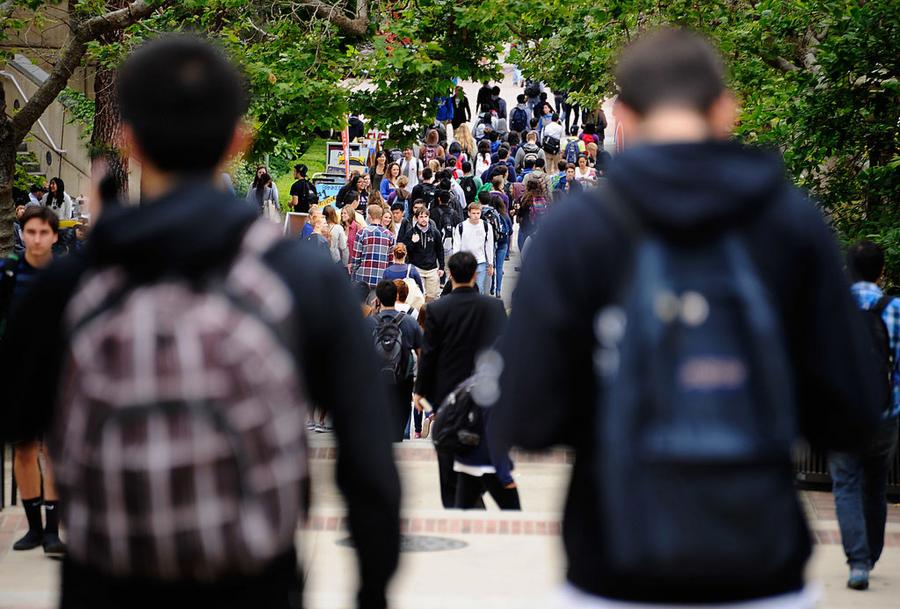Student debt now totals around $1.435 trillion. According to the College Board, more than 60 percent of the class of 2014 graduated with debt that averaged nearly $27,000. Unfortunately, student debt leads to more negative effects than too many Ramen dinners. Studies have shown they lead to a delay in home ownership and a decline in college savings for the borrowers' children — a multigenerational debt cycle.
Why hasn't the United States done something to fix this? Maybe because Uncle Sam is making TRILLIONS of dollars from the system.
As Scott Burns pointed out in a recent The Dallas Morning News article, payments on student loans are made with after-tax income. Burns acknowledges students may graduate from college with a higher earning potential. But if they also graduate from a public school with an average amount of debt, they will owe approximately $25,550 of after-tax income. Factoring in the employment tax everyone pays, the student would need to pay back $37,936. Uncle Sam gets a $12,386 premium on college education.

Kevork Djansezian/Getty Images
"Basically, our government takes in a tax premium of nearly 50 percent of the cost of education as part of providing the loans — and this doesn't consider a dime of the interest expense," Burns wrote.
Uncle Sam makes even more money on students who graduate from private and nonprofit colleges and universities. These students have a larger average loan debt of $32,300. Professional degrees make even more money for Uncle Sam. The combined debt of the average law school graduate is $140,616 and $161,772 for medical school graduates.
By Burns's calculations, Uncle Sam is pulling in approximately $2.13 billion in student loan debt! That's an added tax premium of nearly 50 percent, about $700 billion.
"Wouldn't it be nice if we had a smart government, one that treated higher education as a depreciable investment? It would shrink (but not eliminate) a growing student debt crisis. It would give young workers a better start," wrote Burns.
Both presidential nominees hope to provide that smart government. After talks with Vermont Senator Bernie Sanders, Democratic presidential nominee Hillary Clinton plans to curtail debt for undergraduates. The Clinton campaign said the money lost would be recuperated by ending tax preferences for wealthier Americans. Republic presidential nominee Donald Trump also recognizes the problem.
"The colleges are viewing the students as just a conduit" for government aid, he has said. "We are going to help the students. Maybe that doesn't fit beautifully within the Republican framework."
/2020/10/GettyImages-500476452.jpg)
/2019/09/GettyImages-891987010.jpg)
/2016/04/GettyImages-492713336.jpg)
/2016/09/GettyImages-493331699.jpg)
/2016/05/GettyImages-478496624.jpg)
/2017/07/GettyImages-490572360.jpg)
/2019/01/James-Altucher.jpg)
/2013/12/dan.jpg)
/2011/12/John-Mara-1.jpg)
:strip_exif()/2020/06/taylor.png)
/2010/12/kate-1.jpg)
/2020/10/the-miz.png)
/2011/12/Rooney-Mara1.jpg)
/2020/08/gc-1.jpg)
/2014/04/GettyImages-886617106.jpg)
/2011/01/Aaron-Rodgers.jpg)
/2022/10/peter-krause.jpg)
/2010/03/emil.jpg)
/2020/04/hailey-joel.png)
/2015/09/Daley-Thompson.jpg)
/2020/10/david.jpg)
/2009/11/Brandon-Jennings.jpg)
/2019/01/Kennedy-Montgomery.jpg)